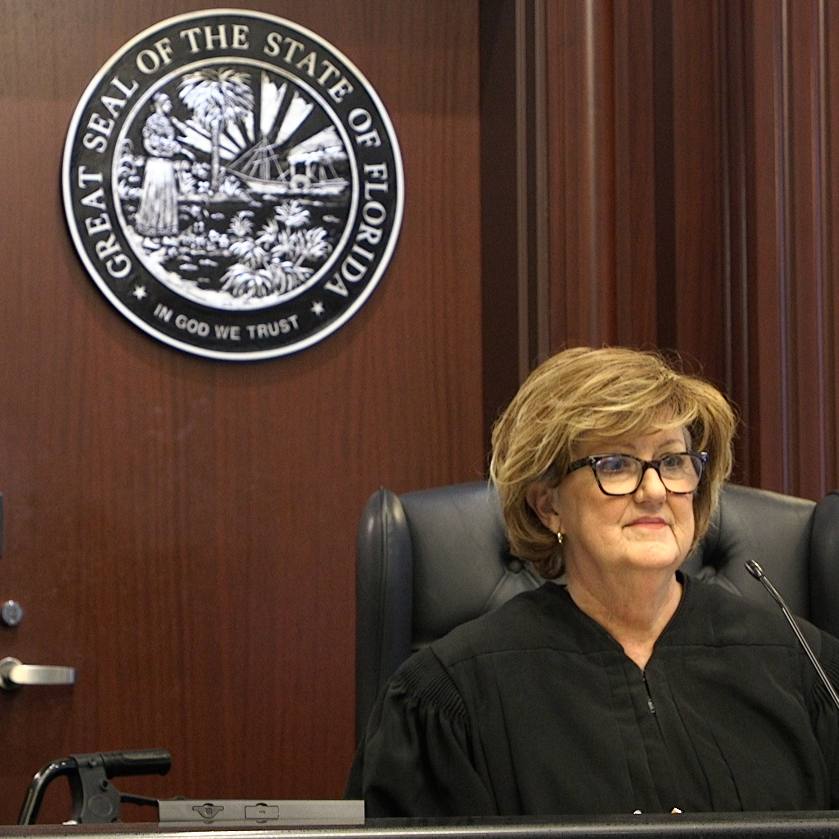
Most people think that colorectal cancer is just an old man's disease, perhaps because current medical guidelines recommend regular screening begin at the age of 50. Truth is, this disease doesn't discriminate in age, gender or race.
Grace De La Rosa was 38 when she was diagnosed with Stage 3 Colon Cancer in 2005. She has no family history of any type of cancer. She's married to a veteran Navy pilot and is a mother of two children, who were 14 and 3 at the time. She was a swimwear model, fitness instructor and fitness competitor. She worked out religiously and ate healthy foods. So that's when De La Rosa was shocked to hear the words, "You have cancer."
She had surgery to remove the golf ball-sized tumor from her colon and received chemotherapy for three consecutive days, every other week, for six months.
De La Rosa and her family lived in southern Maryland at the time of her cancer diagnosis and treatments, but moved back to Jacksonville, Fla., in 2007. Her best friend suggested she go to Mayo Clinic's Florida campus for post-cancer medical care.
"I couldn’t be happier with Mayo Clinic. Everything I need is located under one roof, from physical therapists, neurologists and gastroenterologists to oncologists and radiologists. My favorite part of all is that I don’t have to worry about scheduling procedures and follow-up appointments. Mayo handles all of this for me," says De La Rosa.
Colorectal cancer is the second leading cause of cancer deaths in both men and women combined in the U.S. But it's also one of the most preventable and treatable cancers -- if it's caught early.
"Nobody likes to talk about colon cancer, because the symptoms associated with this disease can be humiliating to discuss with anyone, even your doctor," says De La Rosa. "But we’re talking about a matter of life and death. And I feel it's my responsibility to share the symptoms I experienced so others are empowered with this knowledge."
De La Rosa's symptoms were all clear in hindsight. They included unexplained anemia after the birth of each of her children, and fatigue to the point where she couldn't climb a flight of stairs without having to stop midway to catch her breath. She assumed she either needed to workout harder or throttle back from daily commitments.
"I also experienced abdominal cramps, which I thought were menstrual-related," she says. "And I noticed a tiny speck of blood once when I wiped. It never happened again, so I chalked it up to a spotty menstrual cycle or hemorrhoids which I had never experienced." Just a few months prior to her diagnosis, De La Rosa noticed when she passed gas, the odor was abnormally foul. "I simply assumed it was something I ate," she says.
 If there's just one piece of advice De La Rosa wants to instill in others, it's this: "Don't brush off symptoms that aren't 'normal' for you. Your doctor may be a medical expert, but you are the expert of your own body. Trust your gut. Be proactive in your health care. Know the symptoms of colon cancer. See your doctor, especially if you have a family history of colon cancer, and request a screening, even if you're under 50."
If there's just one piece of advice De La Rosa wants to instill in others, it's this: "Don't brush off symptoms that aren't 'normal' for you. Your doctor may be a medical expert, but you are the expert of your own body. Trust your gut. Be proactive in your health care. Know the symptoms of colon cancer. See your doctor, especially if you have a family history of colon cancer, and request a screening, even if you're under 50."
This year marks De La Rosa’s 9th year as a colon cancer survivor. She created the Be a Blue Buddy campaign in support of National Colorectal Cancer Awareness Month with a mission to educate the community about colon cancer and the importance of early detection, to give hope to newly diagnosed patients, and perhaps to save lives.
She's pushing the public to "Wear Blue" on Friday, March 7, which is National Dress in Blue Day. De La Rosa is pleased to have garnered support from both Florida Governor Rick Scott and Jacksonville Mayor Alvin Brown. Each granted her proclamation requests in recognition of National Colorectal Cancer Awareness Month and Dress in Blue Day.
Dress in Blue Day kicks off National Colorectal Cancer Awareness Month and takes place on the first Friday in March. The event encourages individuals, businesses and community groups to wear blue and talk to each other about the importance of colon cancer screenings. "It's a great way to start a conversation about colon cancer and perhaps save a life," De La Rosa says.
She is also raising funds to donate to Mayo Clinic partner Colon Cancer Alliance's Blue Note Fund. The program provides financial assistance to patients and their families so they can focus on getting well instead of stressing about mounting bills. The fundraising website will feature videos of Grace's story along with conversations from other local colon cancer survivors. It will also include information about colon cancer, symptoms, risk factors and screening methods.
--------------
Grace De La Rosa has spoken before numerous groups about her experiences as a cancer patient and the Be a Blue Buddy campaign, and also shares her thoughts through her online cancer journal.







